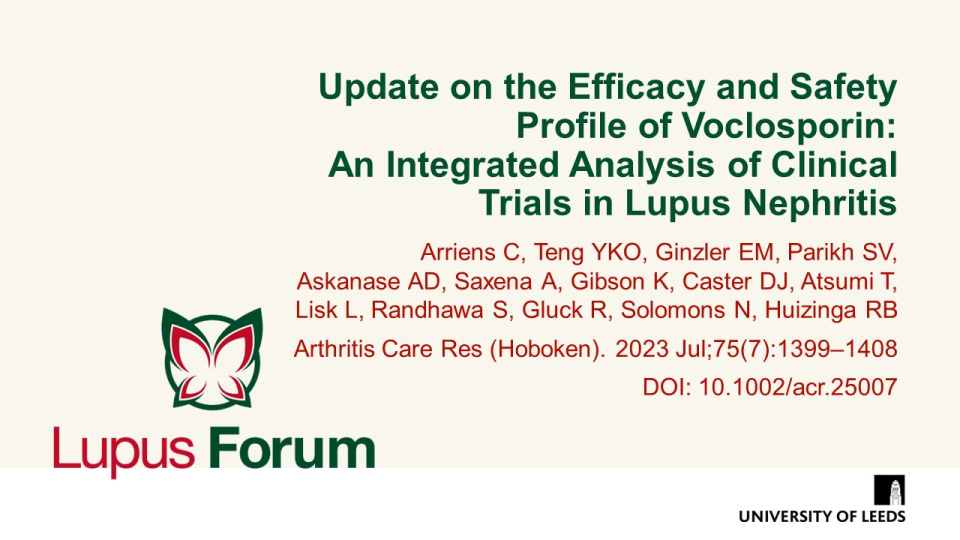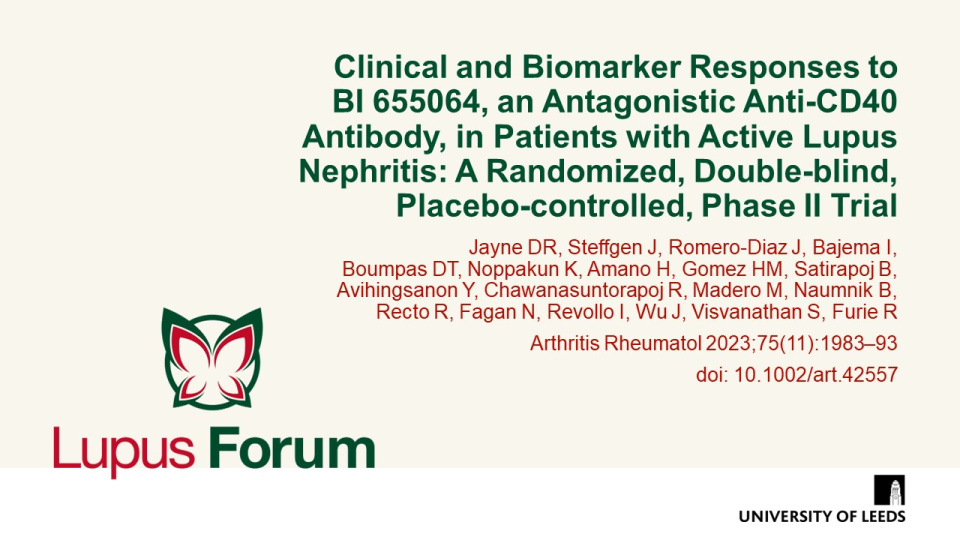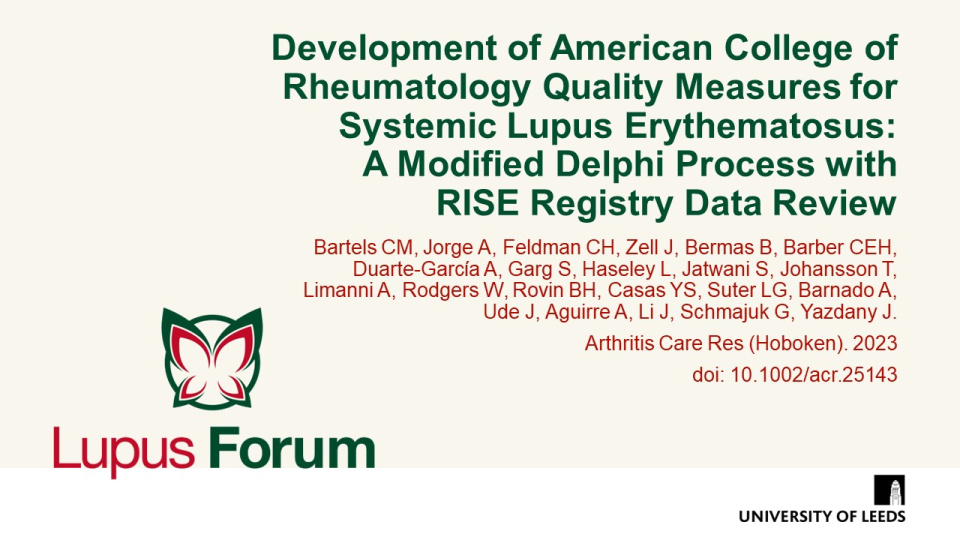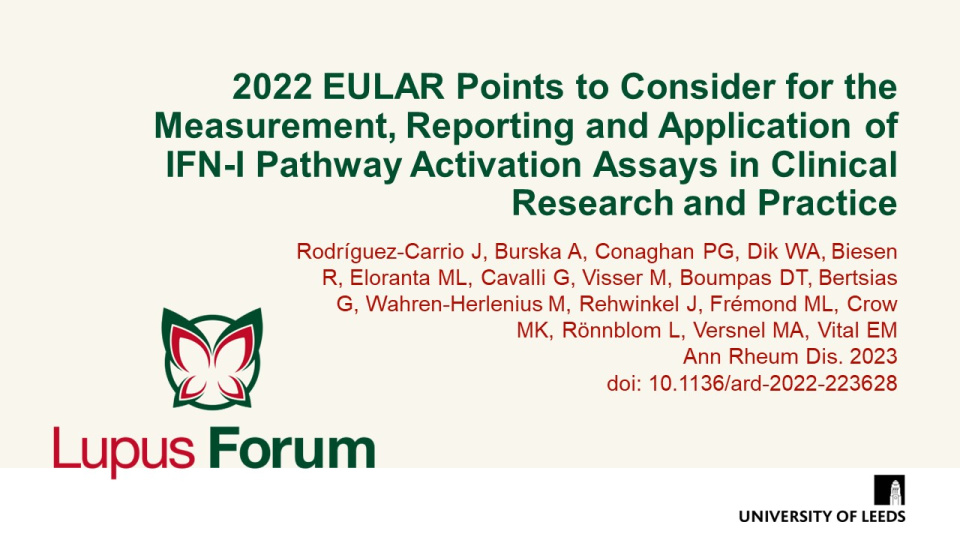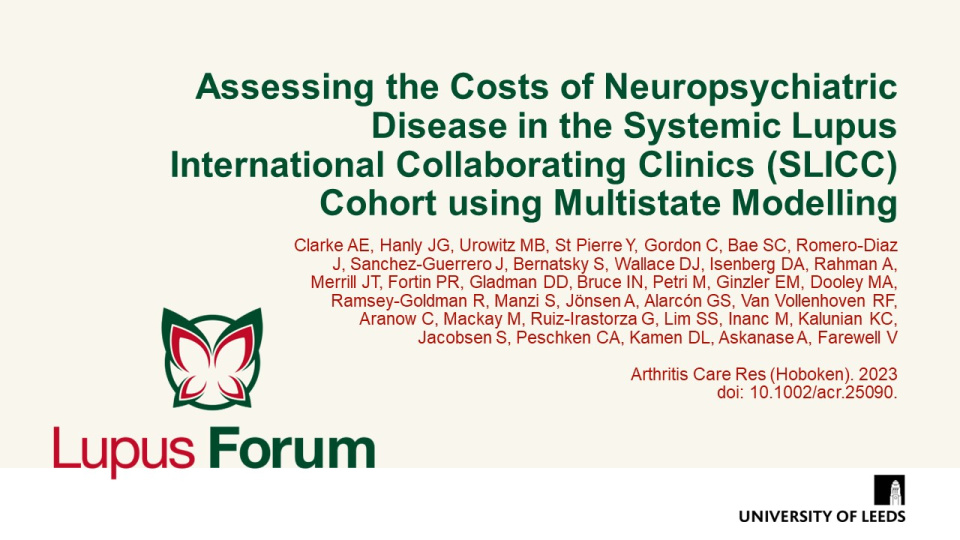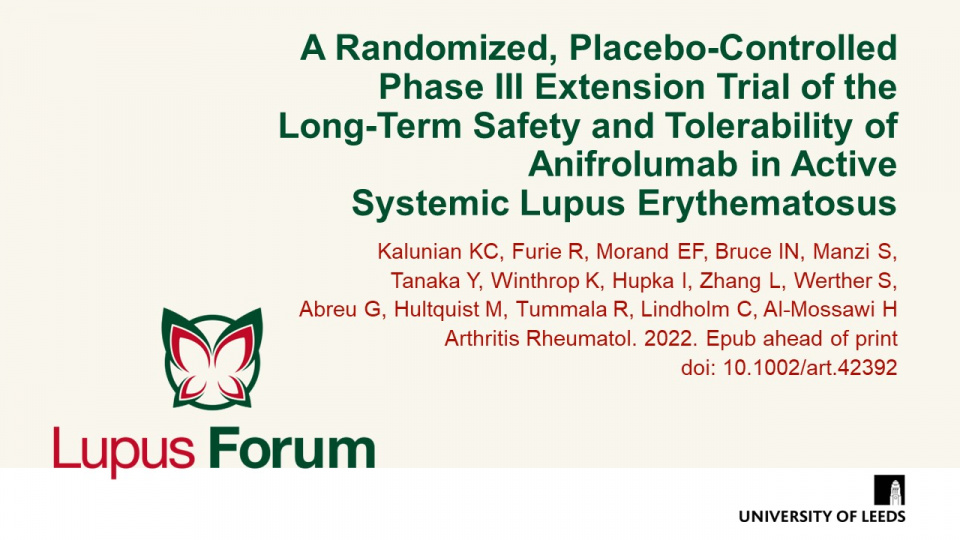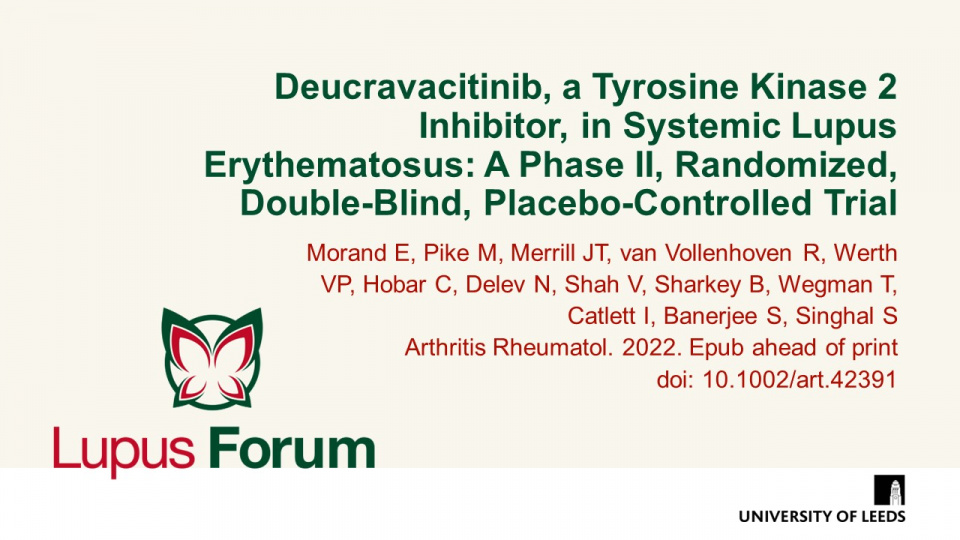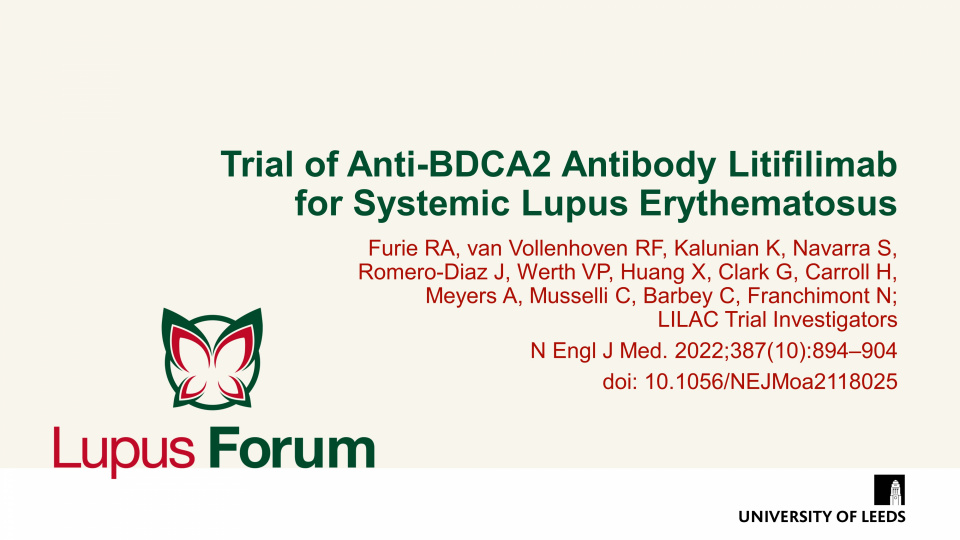Publications
Find coverage of the latest original articles on Lupus, focusing on those with data on therapeutic interventions and those that have clinical impact.
Update on the Efficacy and Safety Profile of Voclosporin: An Integrated Analysis of Clinical Trials in Lupus Nephritis
Arthritis Care Res (Hoboken). 2023 Jul;75(7):1399–1408 DOI: 10.1002/acr.25007
Pooled analysis of data from the AURA-LV phase 2 and AURORA 1 phase 3 trials of voclosporin in patients with active LN demonstrated that significantly more patients achieved a complete renal response at 1 year in the voclosporin than the control group (p<0.0001), with no observation of new safety signals.
Clinical and biomarker responses to BI 655064, an antagonistic anti-CD40 antibody, in patients with active lupus nephritis: a randomized, double-blind, placebo-controlled, phase II trial
Arthritis Rheumatol. 2023;75(11):1983–93 doi: 10.1002/art.42557.
This phase II study of BI 655064 in patients with active LN did not meet the primary endpoint of CRR at Week 52, however, post-hoc analyses suggest a potential benefit of BI 655064 180 mg in patients with active LN.
Development of American College of Rheumatology Quality Measures for Systemic Lupus Erythematosus: A Modified Delphi Process with RISE Registry Data Review
Arthritis Care Res (Hoboken). 2023 doi: 10.1002/acr.25143
The first ACR quality measures for SLE selected by Bartels, et al. use a rigorous Delphi process, and include recommendations on hydroxychloroquine, glucocorticoid reduction and kidney monitoring.
2022 EULAR points to consider for the measurement, reporting and application of IFN-I pathway activation assays in clinical research and practice
Ann Rheum Dis. 2023 doi: 10.1136/ard-2022-223628
The first EULAR-endorsed points to consider (PtC) for the measurement and reporting of IFN-I assays in clinical research and practice are developed.
Keywords:
Assessing the Costs of Neuropsychiatric Disease in the Systemic Lupus International Collaborating Clinics (SLICC) Cohort using Multistate Modelling
Arthritis Care Res (Hoboken). 2023 doi: 10.1002/acr.25090.
First study to assess the long-term economic burden of neurologic and/or psychiatric (NP) lupus in an international, multi-ethnic inception cohort, concludes that patients with new/ongoing SLE or non-SLE NP events incurred higher direct and indirect costs.
A Randomized, Placebo-Controlled Phase III Extension Trial of the Long-Term Safety and Tolerability of Anifrolumab in Active Systemic Lupus Erythematosus
Arthritis Rheumatol. 2022. Epub ahead of print doi: 10.1002/art.42392
Long-term extension study shows an acceptable long-term safety profile of anifrolumab in SLE, in addition to sustained improvements in disease activity and reduction in glucocorticoid use.
Deucravacitinib, a Tyrosine Kinase 2 Inhibitor, in Systemic Lupus Erythematosus: A Phase II, Randomized, Double-Blind, Placebo-Controlled Trial
Arthritis Rheumatol. 2022. Epub ahead of print doi: 10.1002/art.42391
Phase II trial results of deucravacitinib support the potential benefits of TYK2 inhibition in SLE.
Keywords:
Trial of Anti-BDCA2 Antibody Litifilimab for Systemic Lupus Erythematosus
N Engl J Med. 2022;387(10):894–904 doi: 10.1056/NEJMoa2118025
Phase 2 study, in patients with systemic lupus erythematosus, shows that litifilimab is associated with a greater reduction from baseline in the number of swollen and tender joints than placebo, over a period of 24 weeks.


